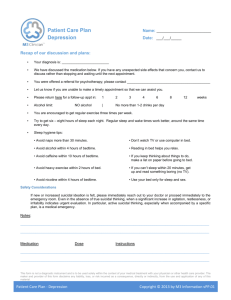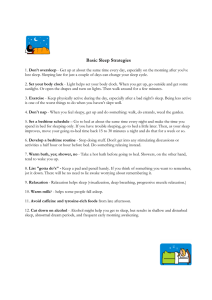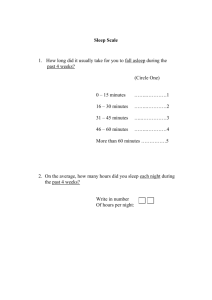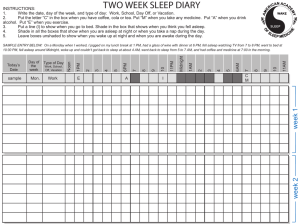Leadership Quote Leadership Lesson
advertisement
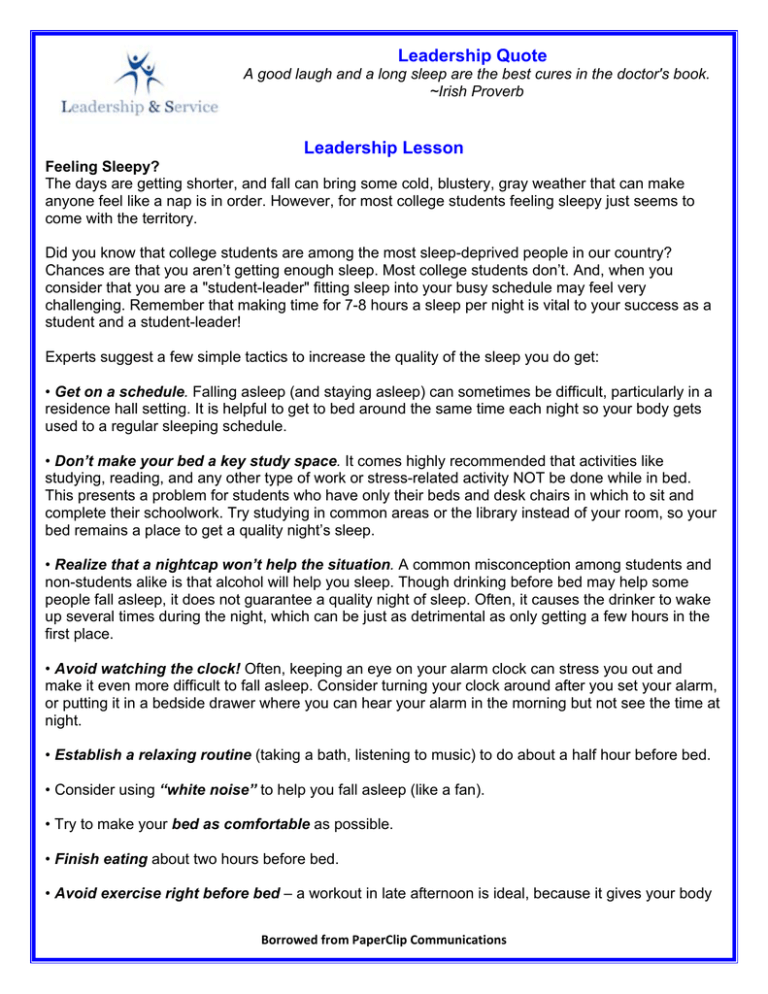
Leadership Quote A good laugh and a long sleep are the best cures in the doctor's book. ~Irish Proverb Leadership Lesson Feeling Sleepy? The days are getting shorter, and fall can bring some cold, blustery, gray weather that can make anyone feel like a nap is in order. However, for most college students feeling sleepy just seems to come with the territory. Did you know that college students are among the most sleep-deprived people in our country? Chances are that you aren’t getting enough sleep. Most college students don’t. And, when you consider that you are a "student-leader" fitting sleep into your busy schedule may feel very challenging. Remember that making time for 7-8 hours a sleep per night is vital to your success as a student and a student-leader! Experts suggest a few simple tactics to increase the quality of the sleep you do get: • Get on a schedule. Falling asleep (and staying asleep) can sometimes be difficult, particularly in a residence hall setting. It is helpful to get to bed around the same time each night so your body gets used to a regular sleeping schedule. • Don’t make your bed a key study space. It comes highly recommended that activities like studying, reading, and any other type of work or stress-related activity NOT be done while in bed. This presents a problem for students who have only their beds and desk chairs in which to sit and complete their schoolwork. Try studying in common areas or the library instead of your room, so your bed remains a place to get a quality night’s sleep. • Realize that a nightcap won’t help the situation. A common misconception among students and non-students alike is that alcohol will help you sleep. Though drinking before bed may help some people fall asleep, it does not guarantee a quality night of sleep. Often, it causes the drinker to wake up several times during the night, which can be just as detrimental as only getting a few hours in the first place. • Avoid watching the clock! Often, keeping an eye on your alarm clock can stress you out and make it even more difficult to fall asleep. Consider turning your clock around after you set your alarm, or putting it in a bedside drawer where you can hear your alarm in the morning but not see the time at night. • Establish a relaxing routine (taking a bath, listening to music) to do about a half hour before bed. • Consider using “white noise” to help you fall asleep (like a fan). • Try to make your bed as comfortable as possible. • Finish eating about two hours before bed. • Avoid exercise right before bed – a workout in late afternoon is ideal, because it gives your body Borrowed from PaperClip Communications adequate time to cool down (and a dropping body temperature is what the brain associates with sleep). Now, hit the sack and treat your body right! Sources: The Centers for Disease Control; www.sleepfoundation.org; www.sleep-deprivation.com This week consider this reflection... As a student leader you are probably burning the candle at both ends. You have your academic responsibilities, maybe even a job, and of course a social life that you are trying to fit into each day. However, in addition you have your leadership responsibilities that take personal time and energy. You may be underestimating the negative influence a lack of consistent sleep is having on all of these areas in your life. Take some time now to reflect on your current sleeping habits and how you might improve them for long-term results. What sleep habits are you currently doing that hinder your ability to get a good night’s sleep (e.g. watching TV to fall asleep, checking in on Facebook before hitting the hay or waking up at different times in the morning)? Select one that you will change today. Set a goal for change and in 21 days see how you feel. Has the change made a difference in how you sleep and how you wake up? Borrowed from PaperClip Communications
